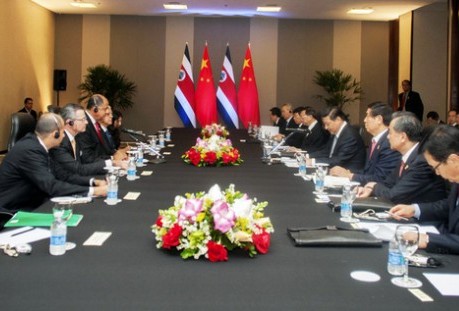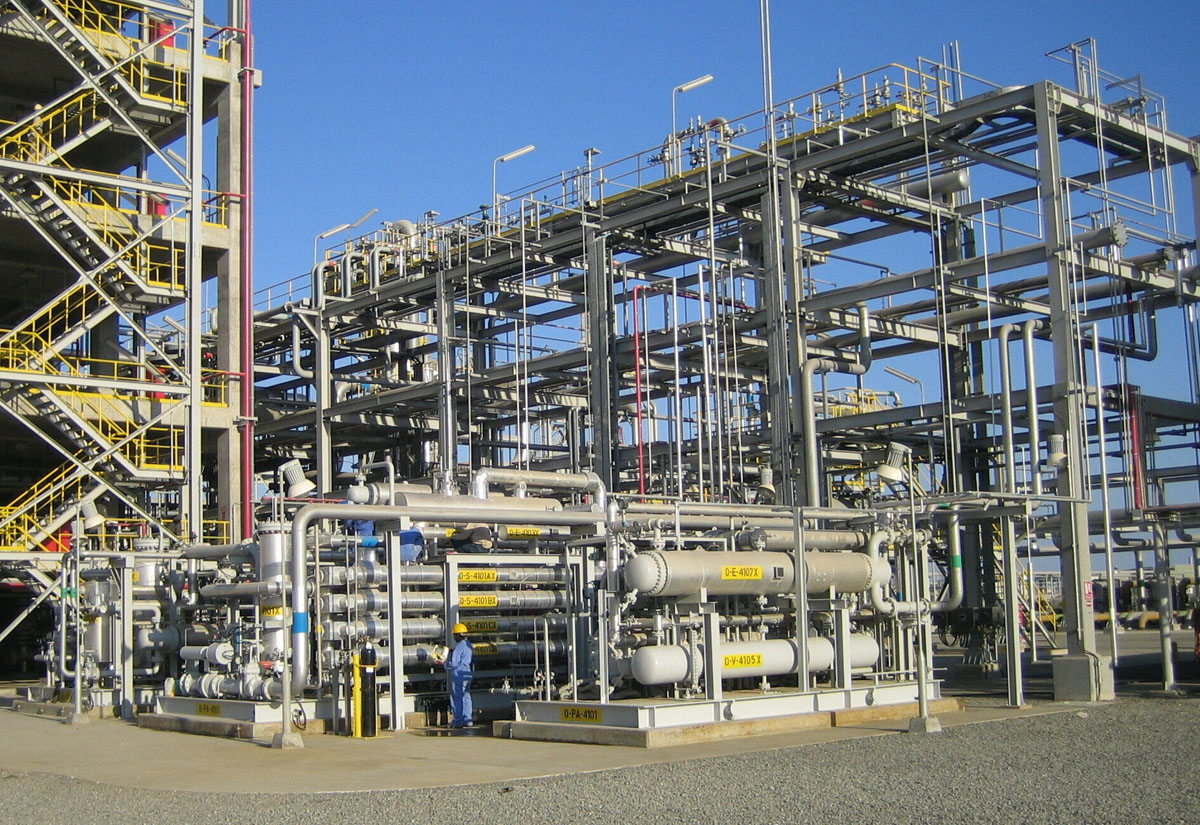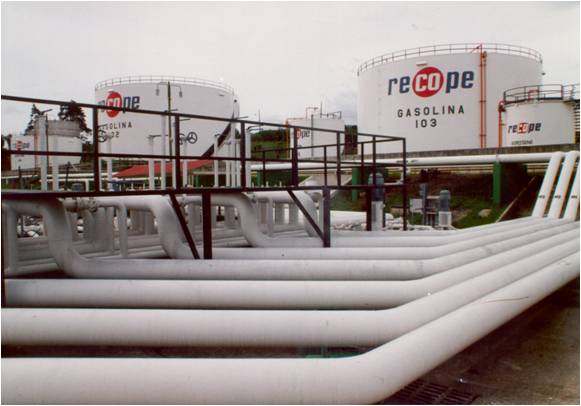Costa Rica News – China’s plan to become Costa Rica’s main energy ally through the joint reconstruction of an oil refinery has been revived after the presidents of the two countries agreed to review the conditions of the project during a meeting in the Brazilian capital.
 The two countries initially signed a framework accord in 2008, including Chinese participation in oil projects, especially the upgrade and expansion of the Moín refinery on Costa Rica’s Caribbean coast, with an investment of 1.5 billion dollars.
The two countries initially signed a framework accord in 2008, including Chinese participation in oil projects, especially the upgrade and expansion of the Moín refinery on Costa Rica’s Caribbean coast, with an investment of 1.5 billion dollars.
But criticism from public institutions, political leaders and social organisations brought the initiative to a halt.
The Costa Rican president’s office stated in a communiqué that Beijing had accepted its request to renegotiate the project, with the aim of “resolving inconsistencies in the contract,” in which each country has invested 50 million dollars so far.
Costa Rican Foreign Minister Manuel González said in a Jul. 22 press conference that “we have no deadline” for that review, which all of the involved institutions will take part in.
President Luis Guillermo Solís participated in the news briefing, although he did not specifically refer to the refinery.
Solís held a bilateral working meeting with Chinese leader Xi Jinping on Jul 17 in Brasilia, during a summit of presidents of the Community of Latin American and Caribbean States (CELAC) with Xi, after the sixth summit of the BRICS (Brazil, Russia, India, China and South Africa) grouping.
The upgrade of the Moín refinery, which belongs to the state oil refinery Refinadora Costarricense de Petróleo (Recope), would increase its processing capacity from 18,000 to 60,000 barrels a day of crude. The company controls Costa Rica’s oil imports, and since 2011 it has had to purchase only refined products, because the plant was shut down.
The joint refinery project, or “Chinese refinery” as it is referred to locally, was criticised by politicians and a large part of organised civil society from the start.
“We have always defended the construction of a refinery, whether it was with China, Russia or France,” said Patrick Johnson, a leader of the oil workers’ union, the Sindicato de Trabajadores Petroleros Químicos y Afines.”We want the confusion to be cleared up…and if the project is beneficial, then it should go ahead because the country needs a refinery,” he told IPS.
In June 2013, the office of the comptroller general brought the initiative to a halt arguing that there were serious problems with a key feasibility study. Since then, the project has been on hold.
The renegotiations should overcome the first real hurdle that China has run into in Costa Rica. In 2007, this country became the first in Central America to establish diplomatic relations with China, in a part of the world that continues to have ties with Taiwan – incompatible with relations with China.
country became the first in Central America to establish diplomatic relations with China, in a part of the world that continues to have ties with Taiwan – incompatible with relations with China.
“Having an embassy here makes it easier to deal with matters with Central America,” Patricia Rodríguez, an expert on China who was an official in Costa Rica’s embassy in Beijing from 2008 to 2010, told IPS.
China is now Costa Rica’s second-biggest trading partner after the United States. This country’s sales to the Asian giant climbed from 91 million dollars in 2000 to 1.5 billion in 2011, when a free trade treaty signed in 2010 went into effect.
In strategic terms, the joint refinery between Recope and the state-run China National Petroleum Corporation International (CNPCI) is China’s star project in the country, and the joint venture Sociedad Reconstructora Chino Costarricense (Soresco) was set up in 2009 to carry it out.
The investment is to amount to 1.5 billion dollars, of which Soresco would receive 900 million in loans from the China Development Bank. The rest will come from the partners. The construction and remodeling of the plant will absorb 1.2 billion dollars of that total.
The work was to begin early this year and was to last 42 months. The comptroller general’s office’s decision to put it on hold was due, among other things, to the fact that the feasibility study was carried out by a subsidiary of CNPCI, which it said subverted the evaluation.
The resolution had the effect of “completely paralyzing the refinery upgrade process by leaving it without the technical studies necessary for it to continue,” explained Recope in a lawsuit brought against the comptroller general’s office in response to the measure.
Despite the ruling by the comptroller general’s office, the administration of conservative President Laura Chinchilla (2010-May 2014) continued to defend the refinery modernization project. But the centre-left Solís promised during the election campaign to renegotiate the agreement, because he considered several aspects of the contract negative for the country.
The request to renegotiate the contract had the support of political sectors and in particular of lawmaker Ottón Solís, an economist and university professor who was one of the first to speak out against certain facets of the agreement.
“We have enormous bargaining power here because China is desperate to open up negotiations with Costa Rica and this country has prestige,” Deputy Solís, of the governing Citizen Action Party, told IPS.
“If we insinuate that it’s impossible to negotiate with China because they take advantage of you with unfair contracts, the whole world will be put on the alert and other countries won’t want to negotiate with them,” and that gives Costa Rica bargaining power, he said.
One of the promises made was that the upgrade of the refinery will bring down fuel costs for consumers, who currently pay 41 percent extra in taxes and profit margins for service stations and Recope’s operating costs.
Petrol currently costs 1.48 dollars a litre in Costa Rica, which makes it the most expensive gasoline in Central America. Official figures from 2012 indicate that oil consumption in the country stood at 53,000 barrels per day.
“Fuel is a fundamental element for price stability because there are public services that depend on its price, like public transportation and electricity, and the same is true in the case of the productive apparatus,” the president of Costa Rica’s consumers association, Erick Ulate, told IPS.
During the meeting with President Solís, Xi also agreed to expand the time frame for carrying out studies for the project of widening the road connecting San José with the Caribbean port of Limón, where 90 percent of the country’s exports are shipped out. The expansion of the road will be financed with a 395 million dollar loan from Beijing.
By Diego Arguedas Ortiz, www.ipsnews.net

